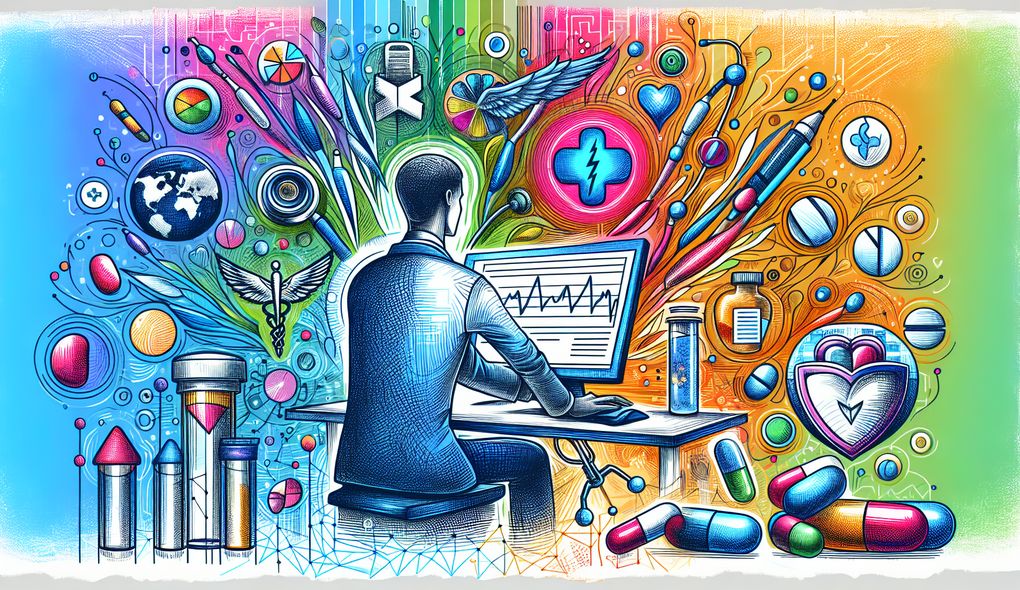What do you think will be the biggest challenge of working as a Healthcare Systems Analyst?
INTERMEDIATE LEVEL

Sample answer to the question:
I believe the biggest challenge of working as a Healthcare Systems Analyst will be keeping up with the fast-paced and dynamic healthcare environment. Healthcare is constantly evolving, with new technologies, regulations, and best practices emerging all the time. As a Systems Analyst, I will need to stay current with the latest advancements in healthcare IT, such as electronic medical record (EMR) systems and data privacy laws like HIPAA. Additionally, I will need to effectively communicate and collaborate with clinical staff to understand their needs and translate them into technical requirements for IT solutions. This will require strong interpersonal skills and the ability to bridge the gap between healthcare professionals and IT professionals.
Here is a more solid answer:
In my opinion, the biggest challenge of working as a Healthcare Systems Analyst will be balancing the diverse needs and priorities of different healthcare stakeholders. It requires strong analytical and problem-solving capabilities to evaluate complex healthcare processes and identify system requirements that address the specific needs of clinical staff, administrators, and patients. Excellent communication and interpersonal skills are essential for gathering system requirements from healthcare professionals and effectively translating them into technical specifications for IT solutions. Technical proficiency with database management and data analysis tools is crucial for managing and integrating large volumes of healthcare data. Additionally, the ability to work in a fast-paced and dynamic environment is necessary to keep up with evolving healthcare technologies and industry standards. Overall, the challenge lies in bringing together various stakeholders and ensuring that the systems implemented meet the diverse needs of the healthcare industry.
Why is this a more solid answer?
The solid answer provides a more comprehensive understanding of the challenges of a Healthcare Systems Analyst by addressing each evaluation area in detail. It highlights the need for analytical and problem-solving capabilities, communication and interpersonal skills, technical proficiency, and the ability to work in a fast-paced environment. The answer includes specific examples, such as balancing the needs of different healthcare stakeholders, evaluating complex processes, and managing healthcare data, which make it more compelling. However, it could be further improved by providing more specific examples of relevant technical skills and experiences.
An example of a exceptional answer:
As a Healthcare Systems Analyst, I believe the biggest challenge will be ensuring the successful implementation of complex IT solutions in a highly regulated healthcare environment. The role requires a deep understanding of healthcare operations and patient care processes to effectively analyze, design, and optimize information systems. It involves coordinating with clinical staff to gather system requirements and incorporate their feedback into the design phase. This requires exceptional communication and interpersonal skills to bridge the gap between healthcare professionals and IT experts. Technical proficiency with information system technologies and programming languages is crucial for developing and integrating robust solutions. Additionally, the ability to manage multiple projects and prioritize tasks in a fast-paced environment is essential. By staying informed about industry standards and regulations, such as HIPAA, and regularly monitoring the performance of healthcare information systems, I can ensure that systems are compliant and secure. Overall, the challenge lies in leveraging technology to improve healthcare delivery, enhance operational efficiency, and safeguard patient confidentiality and data security.
Why is this an exceptional answer?
The exceptional answer provides a comprehensive and detailed response to the question. It addresses each evaluation area in depth and includes specific examples and details, such as the need for a deep understanding of healthcare operations, coordinating with clinical staff, and staying informed about regulations. The answer also highlights the importance of technical proficiency, project management skills, and the ability to prioritize tasks. It goes beyond the basic and solid answers by discussing the role of technology in improving healthcare delivery, operational efficiency, and patient confidentiality. Overall, the answer demonstrates a strong understanding of the challenges of a Healthcare Systems Analyst and presents a well-rounded perspective.
How to prepare for this question:
- Stay updated with the latest advancements in healthcare IT, such as EMR/EHR systems and data privacy regulations like HIPAA.
- Develop strong analytical and problem-solving skills through practice and by working on projects with complex requirements.
- Enhance communication and interpersonal skills by actively engaging with healthcare professionals and learning to translate their needs into technical requirements.
- Familiarize yourself with database management and data analysis tools commonly used in the healthcare industry.
- Gain experience working in fast-paced environments by taking on challenging projects and managing multiple tasks simultaneously.
What are interviewers evaluating with this question?
- Analytical and problem-solving capabilities
- Communication and interpersonal skills
- Technical proficiency
- Ability to work in a fast-paced and dynamic environment

